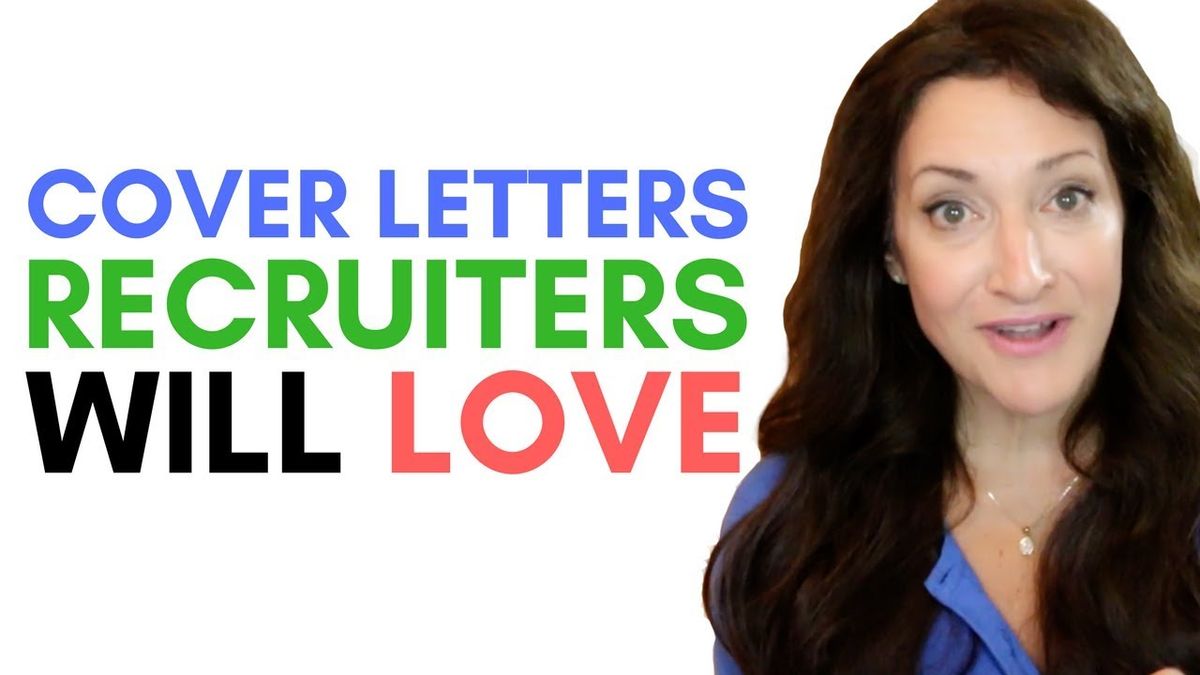So... you've created a knockout resume, and you're ready to wow employers by sending it directly to them. Don't forget to send it under cover—a powerful cover letter, that is. While a great resume can open doors, a compelling cover letter can be an equal (if not MORE) important part of your pitch for employment. In fact, some surveys of HR professionals and recruiters have suggested the cover letter—instead of the resume—is what really gets read! That's right! The interviewing decision may actually rest on how well-written and concise your letter appears... and the irony is you may never find out whether it was the resume OR the cover letter that swayed an employer. Even if cover letter writing isn't your style, don't panic! Read on for five strategies that can help even a novice letter writer create a memorable introduction to capture an employer's attention:
1. Ensure Your Letter Matches Your Resume In Presentation And Style
Start by copying the name and address header information from your resume to a blank document. Next, check the margins on each document to ensure they match. Be sure to use the same font as your resume, in order to give your application a professional "package" look. In addition, don't suddenly switch fonts or font sizes in the midst of the letter itself. With this type of presentation, hiring authorities can match your resume to the letter-plus, doing so helps to put your best professional foot forward.2. Find Out The Hiring Manager's Name Before Sending Your Application
Skip, "Dear Sir" by finding out exactly who is behind the open position. This is where your Internet research skills will come in very handy. Sites such as LinkedIn or Zoominfo.com are great resources for job hunters who want to find company insiders. In addition, you might be able to call the company and ask who the hiring manager is for the open position, or use your network to learn the names of managers at the company. If you can't find out the name, "Dear Hiring Manager" is most appropriate. Skip, "To Whom it May Concern"—or it won't concern anyone!3. Keep In Mind The Purpose Of The Letter Is To Gain Attention
Your first paragraph should therefore skip mundane details and get right to the point. Aim for an opening sentence that states your main qualifications, plus your objective, all in one shot. For example, a cover letter for a Sales Manager might begin with:With a strong background closing contracts in excess of $1 million at Fortune 500 corporations, I am confident that I can exceed your expectations in the role of Sales Executive.Conversely, an Operations Director might use the following:
As an operational executive focused on delivering the highest levels of quality, I have helped global organizations achieve their profit goals by leading large teams to achieve infrastructure improvement and maintain cost control. These qualifications have prompted my application to your company for the position of Operations Director.
4. Don't Repeat Everything In Your Resume
Even though you've put a lot of effort into your resume, it's still best to resist the temptation to repeat all that great information. You'll capture more interest by restating your main points, allowing the reader to see how you will succeed in the new job. I recommend adding a bullet-point list of your relevant qualities and achievements, keeping it to a maximum of five critical points. Preface it with "Representative skills that make my background ideal for this position include..." to give the employer a quick snapshot of your fitness for the job. Still stumped for ideas? Try to answer the classic "Why should we hire you?" question, and you'll be able to state your case much more succinctly.5. Limit The Number Of Sentences Beginning With "I"
Focusing on the job and the employer's requirements are key strategies for a great introduction. One of the best ways to do this is to refrain from using first person references at the beginning of your sentences. Why is this so important? Employers are hiring a solution to their business problems when they bring you on board, and this means focusing on their requirements is a key step. Think about it this way: when you create a verbal picture of what you can achieve, it rarely starts with "I"—and structuring your thoughts this way can help reinforce your emphasis on the company's needs. The following example illustrate this point:Given your needs for a proven sales performer open to new challenges in the medical device industry, we should talk further about my record of success in territory expansion.In summary, don't forget to create a strong cover letter as part of your job hunting strategy. You'll find that a personal, yet powerful, introduction to your skills might be all you need to access more interviews.


 Bigstock
Bigstock Bigstock
Bigstock Bigstock
Bigstock


